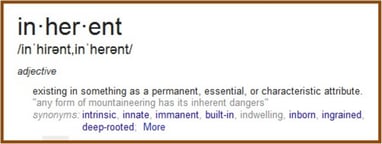The Difference the Right Employees Can Make For Your Construction Business
 Having the right employees at your business can make a huge difference to your business in so many ways.
Having the right employees at your business can make a huge difference to your business in so many ways. Over the holidays this Christmas season I went on an annual goose hunting trip in Illinois with some contractor buddies. My first return flight was delayed and I was at risk of making my connection to get back home. I was obviously bummed out. But, thanks to just one exceptional airline employee, I made the connection and got back in time to celebrate the New Year with my family. Here's what that employee did and why you should seek, choose and train your employees to be just like her.
First off she had a great attitude and presented herself well
The woman who checked me in was well dressed and well groomed. Sure she had to wear a uniform (and so should your employees), but in addition to wearing professional attire she obviously also had a lot of self-respect and presented herself well. Unlike others I observed working around her she was professionally groomed, interacted with a genuine smile and spoke with a professional vernacular. I suspect someone raised her to be that way and I could tell it was natural for her, not an act. In my opinion hiring her was a great investment.
Next, she managed my expectations and offered proactive assistance
 As she checked me in she made me aware that my flight was likely to be delayed and therefore making my tight connecting flight might be at risk. I had never had anyone else at any airline do this at check in. She also told me why it might be late before I had chance to ask her why. By doing so my attitude about my situation was already less stressful. She then helped me make a "Plan B" in case I missed that flight. By doing so I went to the gate in a much better frame of mind than the frame of mind I would have been in if I discovered my possible dilemma at the gate.
As she checked me in she made me aware that my flight was likely to be delayed and therefore making my tight connecting flight might be at risk. I had never had anyone else at any airline do this at check in. She also told me why it might be late before I had chance to ask her why. By doing so my attitude about my situation was already less stressful. She then helped me make a "Plan B" in case I missed that flight. By doing so I went to the gate in a much better frame of mind than the frame of mind I would have been in if I discovered my possible dilemma at the gate. Then she was at the gate and was working hard to mitigate potential challenges
Yes, the same woman who checked me in soon came to work the gate, and was all by herself. I suggest, like a small business, the gate at that small airport could not support additional overhead. She was obviously cross trained by her employer to perform a wide variety of tasks and to do so very efficiently. For that I not only credit her employer for properly training her, but for also hiring an employee with the right cognitive abilities and a desire to learn. For that I can probably also credit her as well as whoever raised her and or mentored her in her formative years. With her actions, knowledge and a professional demeanor she got the incoming passengers squared away, prepped things for my outbound flight, and very efficiently got us all boarded faster that I have ever experienced before. And I travel a lot! She minimized the potential delay big time like it was second nature.
The good news was that I made my connection to get home.
 The better news, for me and her employer, is that she restored my faith in her company as a preferred option. The next time I have a choice when deciding between available airline options to serve my traveling needs my experience that day with her will definitely become part of my buying decision.
The better news, for me and her employer, is that she restored my faith in her company as a preferred option. The next time I have a choice when deciding between available airline options to serve my traveling needs my experience that day with her will definitely become part of my buying decision.I hope sharing my experience that day will help you make better hiring plans and decisions. For additional help and insight check out his article titled "One Simple but Powerful Tip for Hiring the Right Employees”


 Most contractors can't explain how they do business, they just make things happen. In a smaller remodeling business, say up to about $5-700K of installed work, this may get you by. But as you grow your business, particularly if you want to
Most contractors can't explain how they do business, they just make things happen. In a smaller remodeling business, say up to about $5-700K of installed work, this may get you by. But as you grow your business, particularly if you want to  Be careful here. If you don't explain how you do business before winning the bid on an architect driven remodeling project you might just be told how you will do business. Examples include how and when you will be paid, what will be considered a change order vs. what you should have assumed to be included, what margin you can earn on change orders, and what hoops you will need to jump through before receiving progress payments and final payments. Be sure to carefully read any AIA Contracts before signing them.
Be careful here. If you don't explain how you do business before winning the bid on an architect driven remodeling project you might just be told how you will do business. Examples include how and when you will be paid, what will be considered a change order vs. what you should have assumed to be included, what margin you can earn on change orders, and what hoops you will need to jump through before receiving progress payments and final payments. Be sure to carefully read any AIA Contracts before signing them. As I pointed out in
As I pointed out in 
 Personal qualities needed to be a Lead Carpenter
Personal qualities needed to be a Lead Carpenter
 Skilled Carpenters are assumed to have the trade skills needed to do the work at hand and to understand construction. But just because a carpenter has these skills doesn’t necessarily also mean he or she has the rest of what it takes to be a successful Lead Carpenter. Below is the first half of a list of key skills a carpenter should have or will need to acquire to become a great Lead Carpenter. I created this list to help carpenters and construction business owners improve their chances of success developing Lead Carpenters and a true Lead Carpenter System.
Skilled Carpenters are assumed to have the trade skills needed to do the work at hand and to understand construction. But just because a carpenter has these skills doesn’t necessarily also mean he or she has the rest of what it takes to be a successful Lead Carpenter. Below is the first half of a list of key skills a carpenter should have or will need to acquire to become a great Lead Carpenter. I created this list to help carpenters and construction business owners improve their chances of success developing Lead Carpenters and a true Lead Carpenter System. 
 Speaking: Ability to speak clearly including selecting language, tone of voice, and gestures appropriate to a specific audience.
Speaking: Ability to speak clearly including selecting language, tone of voice, and gestures appropriate to a specific audience. Creative Thinking: Has the ability and is not afraid to use imagination freely to combine ideas or information in new ways. Can easily make connections between ideas that seem unrelated to others.
Creative Thinking: Has the ability and is not afraid to use imagination freely to combine ideas or information in new ways. Can easily make connections between ideas that seem unrelated to others. One of the very important things that hands-on contractors who seek to become construction business owners need to get ready for is bringing on sales staff to help the owner sell an adequate volume of work as the business grows. Below is a 10 item checklist contractors can use to help them get ready for this critical step in the growth of their businesses. From my own experience of hiring my first remodeling salesperson many years ago number 10 is the most important.
One of the very important things that hands-on contractors who seek to become construction business owners need to get ready for is bringing on sales staff to help the owner sell an adequate volume of work as the business grows. Below is a 10 item checklist contractors can use to help them get ready for this critical step in the growth of their businesses. From my own experience of hiring my first remodeling salesperson many years ago number 10 is the most important. Establish Sales Goals and a Performance Based Compensation Strategy you can share with candidates as you interview them and your business will use once they are hired.
Establish Sales Goals and a Performance Based Compensation Strategy you can share with candidates as you interview them and your business will use once they are hired.
 Why not write job descriptions before you seek to hire!
Why not write job descriptions before you seek to hire!  I hope you can see by my examples offered above that if you don’t define what you want in advance you may not get what you really need. If fact, hiring the wrong person can cost you a lot of money due to wasted time and lost opportunities while you seek out and onboard a replacement candidate.
I hope you can see by my examples offered above that if you don’t define what you want in advance you may not get what you really need. If fact, hiring the wrong person can cost you a lot of money due to wasted time and lost opportunities while you seek out and onboard a replacement candidate. 
 If you have lost focus or lack the discipline to put business systems in place and stick to them it’s time to commit to and practice new attitudes and behaviors. Before you grow your business consider the adequacy of your financial system to predict and measure results. Do you have a formal marketing plan to guide you or are you winging your marketing? Do you have well thought out job descriptions you can use to recruit, qualify and hold new hires accountable to? Have you established benchmarks for the performance of your business systems? If you don’t have or do these things what example are you setting and what type of employees will join and or stay with your business?
If you have lost focus or lack the discipline to put business systems in place and stick to them it’s time to commit to and practice new attitudes and behaviors. Before you grow your business consider the adequacy of your financial system to predict and measure results. Do you have a formal marketing plan to guide you or are you winging your marketing? Do you have well thought out job descriptions you can use to recruit, qualify and hold new hires accountable to? Have you established benchmarks for the performance of your business systems? If you don’t have or do these things what example are you setting and what type of employees will join and or stay with your business? A growing business that wants to attract and keep good employees needs to act professional. This means having a proactive and strategic marketing plan in writing. It means preparing a financial operating budget and staying within it. It means investing in training and mentoring your employees to be the future leaders your business will need. It means creating a profit sharing strategy and or compensation strategies based on performance. It also means operating legally and safely.
A growing business that wants to attract and keep good employees needs to act professional. This means having a proactive and strategic marketing plan in writing. It means preparing a financial operating budget and staying within it. It means investing in training and mentoring your employees to be the future leaders your business will need. It means creating a profit sharing strategy and or compensation strategies based on performance. It also means operating legally and safely. Before you as the leader can step away from your business the business needs to have a new leader already in place. Many business owners are forced back into leading and managing their businesses because the person they hired to do so did not have adequate leadership skills and or wasn’t yet seen as the leader by the other employees. Don’t make this mistake at your business. Before you step away make sure there is a successful transition of leadership from you to the new leader; in the eyes of the employees as well as your customers. Also, make sure you have a way to measure the performance of the business and the leader before you pull away. Again I suggest you have this in place and confirm it is working before you transition out of your office and your roles at the business.
Before you as the leader can step away from your business the business needs to have a new leader already in place. Many business owners are forced back into leading and managing their businesses because the person they hired to do so did not have adequate leadership skills and or wasn’t yet seen as the leader by the other employees. Don’t make this mistake at your business. Before you step away make sure there is a successful transition of leadership from you to the new leader; in the eyes of the employees as well as your customers. Also, make sure you have a way to measure the performance of the business and the leader before you pull away. Again I suggest you have this in place and confirm it is working before you transition out of your office and your roles at the business.
 If you buy straight, clean and clear lumber, decking for example, you can quickly install the decking because you won’t have to straighten out each piece as you go. Also, you won’t have to worry about trying to hide any imperfections like loose
If you buy straight, clean and clear lumber, decking for example, you can quickly install the decking because you won’t have to straighten out each piece as you go. Also, you won’t have to worry about trying to hide any imperfections like loose 


 A communicator -someone who can exchange ideas, and be open to other’s solutions in addition to being able to clearly articulate their ideas through verbal and written channels in a timely and responsive manner.
A communicator -someone who can exchange ideas, and be open to other’s solutions in addition to being able to clearly articulate their ideas through verbal and written channels in a timely and responsive manner.


 The changes Joe has made provide a better level of service and attention to current prospects and customers, and, at the same time, gives Joe the time and ability to also fully focus while meeting with new prospects for the first time. By sharing the workload with the right person and using the right process Joe has improved the service his company delivers and his customers are very happy. He says he now looks forward to working with new prospects as their calls keep rolling in.
The changes Joe has made provide a better level of service and attention to current prospects and customers, and, at the same time, gives Joe the time and ability to also fully focus while meeting with new prospects for the first time. By sharing the workload with the right person and using the right process Joe has improved the service his company delivers and his customers are very happy. He says he now looks forward to working with new prospects as their calls keep rolling in.





